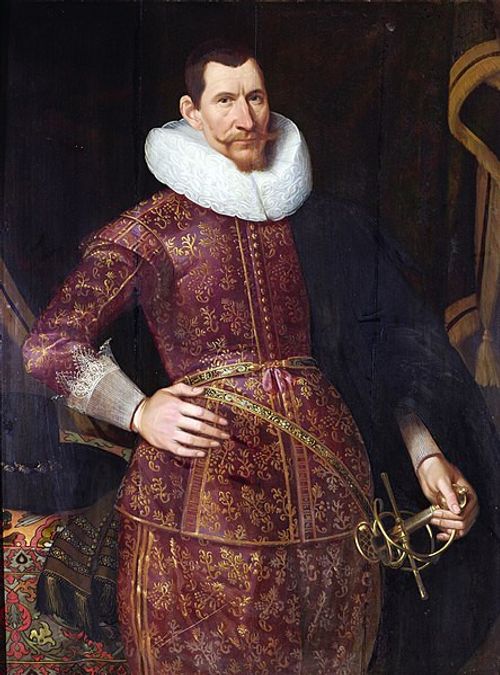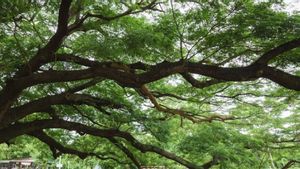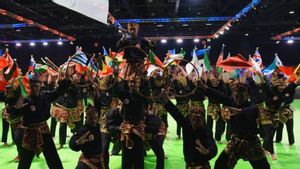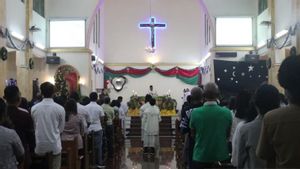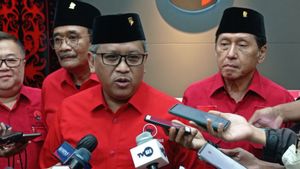JAKARTA – Today's history, 404 years ago, April 18, 1618, Jan Pieterszoon Coen started a new career as Governor-General of the VOC. His leadership was revered in the Land of the Windmills. While the natives hate it. It brings new history.
Coen was the foundation stone of Dutch colonialism in the archipelago. He founded Batavia and was the first to launch a trade monopoly case in remote parts of the country. The spell was successful. As a tribute, the Dutch made a statue of Coen in Batavia.
The roots of the Dutch colonization of the archipelago cannot be separated from the role of a Coen. The man from Hoorn had thoughts beyond his time. Even if he's just an accountant. He has a high analytical power about the advantages and disadvantages of the Dutch trading airline VOC. Coen realized the VOC was legally strong. However, not economically.
The VOC would never be enough to cover all the costs of the expedition to find and send spices to the Netherlands. Moreover, controlling the potential territory of the archipelago: Maluku, Ambon, and Banda is a fixed price. He then focused on plans to establish Dutch settlements in the archipelago.
Coen's idea also attracted the hearts of the VOC shareholders. All of Coen's needs were met by the VOC, although not all of them. They also appointed Coen as Governor-General of the VOC on April 18, 1618. In fact, choosing Coen was the right choice.

Coen moved quickly to dominate various places in Indonesia. Jayakarta was conquered in 1619. It was on the ruins of Jayakarta that Coen built a Dutch settlement. Batavia, the name. Coen is confident. He also continued his power to conquer other regions in the archipelago.
“It is clear that Coen's plans are not limited to the Indonesian Archipelago. He intended to build a large commercial empire in Asia with his capital city Batavia, the city he founded. He was not at all interested in political developments in the interior of the Indonesian archipelago. the most important thing for him is just to maintain some of the Dutch positions he wants to establish, and total control over the sea.”
“Obviously he was a statesman with great vision and imagination and long-sightedness that are the hallmarks of a true human leader. Even the narrowness of his mind in other matters, as well as his cruelty, helped him achieve his great goals, all his thoughts were centered on his great commercial empire," concluded Bernard HM Vlekke in the book Nusantara (2018).
The shareholders also trusted Coen as governor-general of the VOC twice (1619-1623 and 1627-1629). VOC profits were multiplied because of Coen. Even after Coen died, his successors continued to use Coen's methods. It may be that the Coen natives are like evil invaders. The Dutch see otherwise. They looked at Coen like a hero.

His enthusiasm continues to make the Netherlands still exist in the archipelago. Even though the VOC had gone bankrupt and was replaced by the Dutch East Indies colonial government. As a tribute, the owner of the government made a statue of Coen. The statue as high as 4.10 meters was immediately transformed into an icon of Batavia. The statue was inaugurated to coincide with the 250th anniversary of the city founded by Coen Batavia on May 29, 1869.
“In front of the palace there is a statue of Jan Pieterszoon Coen, the founder of Batavia. The statue was inaugurated during the celebration of Batavia's 250th anniversary. Now I know better what I will say when asked where the Weltevreden barracks (now: near Lapangan Banteng) where I live, behind Jan Pieterszoon Coen concluded, concluded the Dutch soldier, HCC Clockener Brousson in his book Batavia Awal 20 Century (2017).
The appointment of Jan Pieterzoon Coen as Governor-General of the VOC is an important event in today's history, April 18, 1618 in Indonesia.
The English, Chinese, Japanese, Arabic, and French versions are automatically generated by the AI. So there may still be inaccuracies in translating, please always see Indonesian as our main language. (system supported by DigitalSiber.id)
